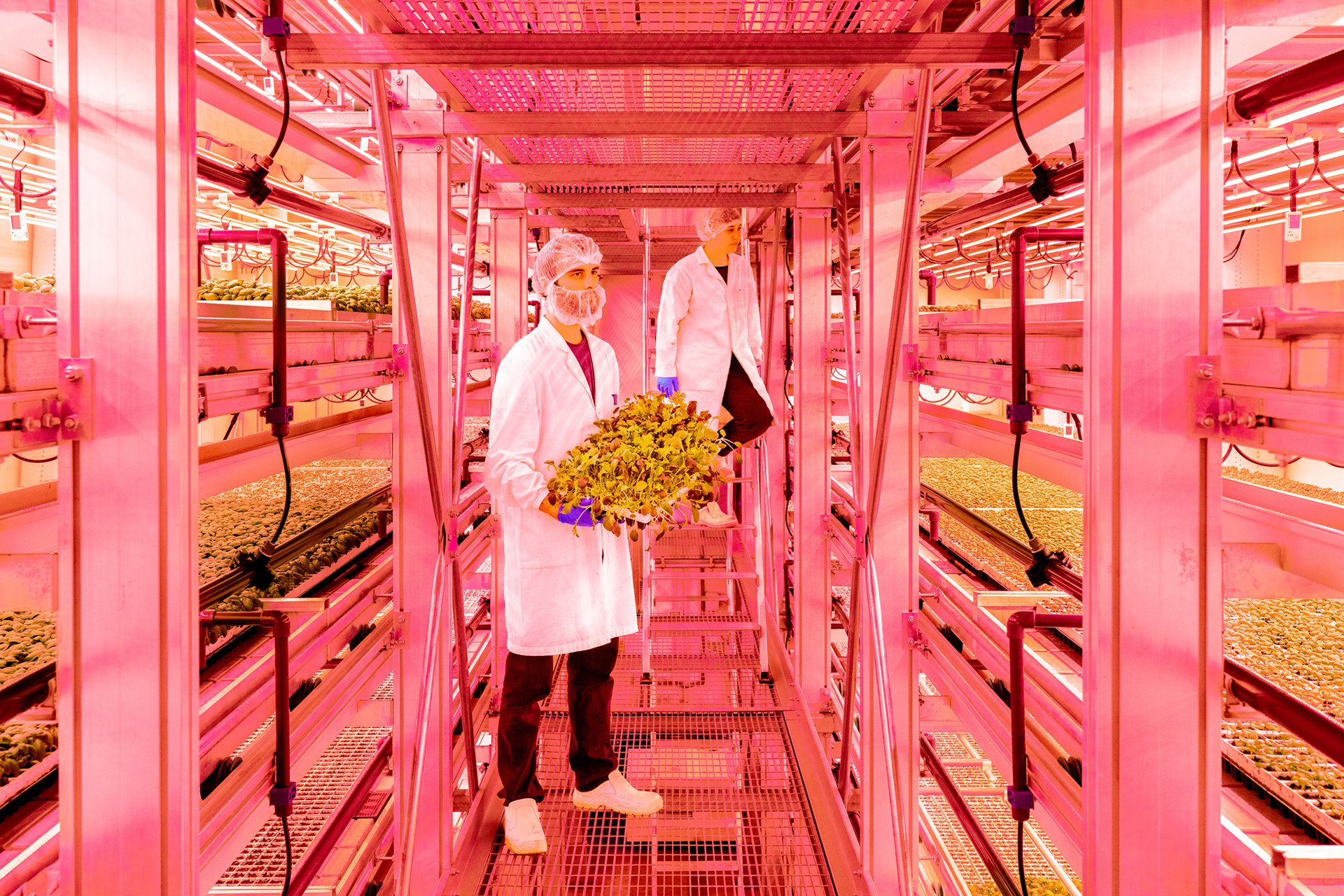Workers monitor seedling growth at a vertical farm, near Milan, Italy. Crops grown in vertical stacks increase efficiency of land use, and reduce water consumption. According to research published in the International Journal of Agriculture, Environment and Food Sciences, the yield from vertical farm crops is around times higher that of normally produced field crops, and saves about 70-95 percent on water.
This project documents different technologies that offer possible routes of transition to a net-zero economy. The photographer visited innovative facilities across Europe, from Iceland to Italy, from 2020 to 2022.
Human-induced climate change is the largest, most pervasive threat to the natural environment and society that the world has ever experienced, according to the UN Human Rights Office, OHCHR. This prompted the European Union to establish targets to cut greenhouse emissions by at least 55 percent by 2030 and to reduce them to net-zero by 2050. European companies seeking ways to achieve these goals are exploring renewable energies, new technologies for food production, and the circular economy as potential ways forward.

